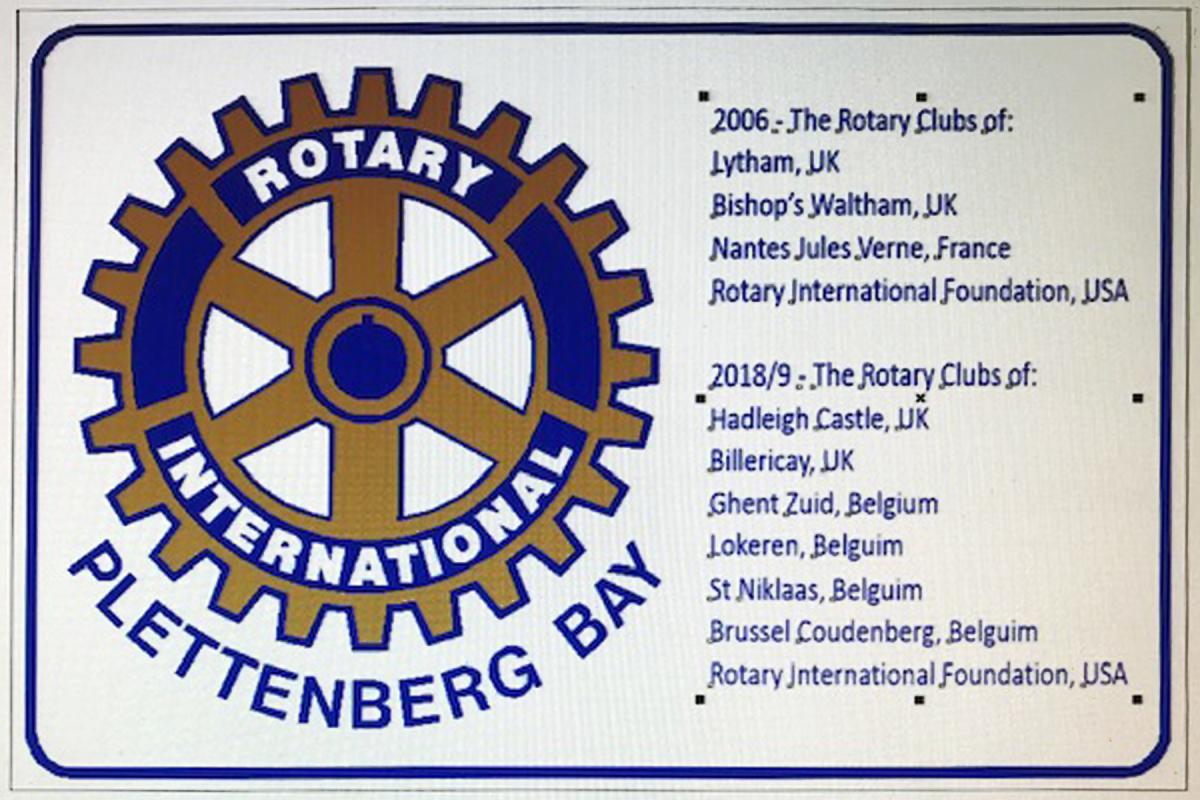Harkerville School Project
We supported the Rotary Club of Plettenberg Bay and its partners at Harkerville School
One Swallow
May Not A Summer Make ...
But it can make a difference
The swallow in question isn’t a bird, it’s the term used by South Africans to describe Europeans who fly down to South Africa for the southern hemisphere’s summer and then fly back to Europe for the northern summer.
Peter Adams, a member of the Rotary Club of Hadleigh Castle when in the UK, is just such a swallow. He visited our club in 2018 to talk about the work they had done over 15 years or so at Harkerville School in conjunction with the Rotary Club of Plettenburg Bay (where he was a ‘swallow’ member) and the Global Grant they were seeking to fund the next phase of improvements.
On March 10 four members, Brian Wellman, Mike Ginn, Peter Strong and myself, paid a virtual visit to the Hadleigh Castle club to hear a report on the outcome of that Global Grant and the Harkerville Project. We were shown pictures of the refurbished school building, the new toilet block and the up-to-date computer facilities installed that makes Harkerville the envy of many other local schools.
The plaque of supporters and donors including the Rotary Club of Billericay’s name, was a major feature of the presentation.
Soaring Pupil Numbers
A new headteacher has proved extremely effective in recruiting a strong team of teachers, and the school is now very popular due to high quality teaching and well-equipped classrooms.
Pupil numbers, which six years ago were in the sixties, with pupils working in a dilapidated building, are today over 400 with a waiting list, as the school is recognised as being an outstanding place of learning, thanks in part to donations from Billericay and Hadleigh Castle Rotary Clubs. Many students have their education funded by partner charity ‘Born in Africa’, which runs a successful ‘godparent’ scheme.
Covid has caused problems, not least around funding. One major current priority is the soup kitchen. 600,000 rand was raised for this and it provides about 250 meals per day plus occasional food parcels. However, most of this money has now been used and it is hard to raise more, due in part to donor fatigue, to not being able to run their usual fundraising events, and to business turn-down.
Many businesses in the Plettenberg Bay area are dependent on tourism. There are no tourists, causing many business closures. Job losses have been common. Unemployment has risen to about 32% locally. Donations from supermarkets of food reaching expiry date has helped keep costs down but it still needs about 15,000 – 20,000 rand (£750 - £1,000) per month to run the service.
Market Fund Raiser Success
Asked whether the veggie garden started a few years ago is still successful, they confirmed that about 90% of the produce is used by the school and the excess is sold at the local market, raising funds for the school.
Peter Adams summed up by pointing out that the project is a great example of how three organisations working together - the Anglican Church of South Africa (who own the school), educational charity ‘Born in Africa’ and the Rotary Club of Plettenburg Bay – supported by donations from Rotary Clubs in Belgium and ourselves in the UK, have been able to achieve something that none of them could have done individually.
We are very proud of being a sponsor and contributor to the funding for this project.
back to page above this...
Foundation & International
back The club's activities in support of the Rotary Foundation and International links.







